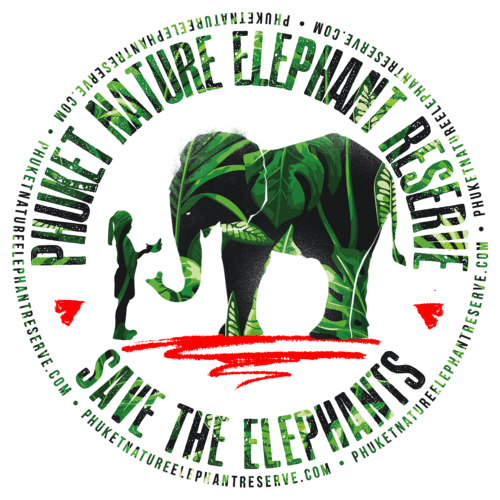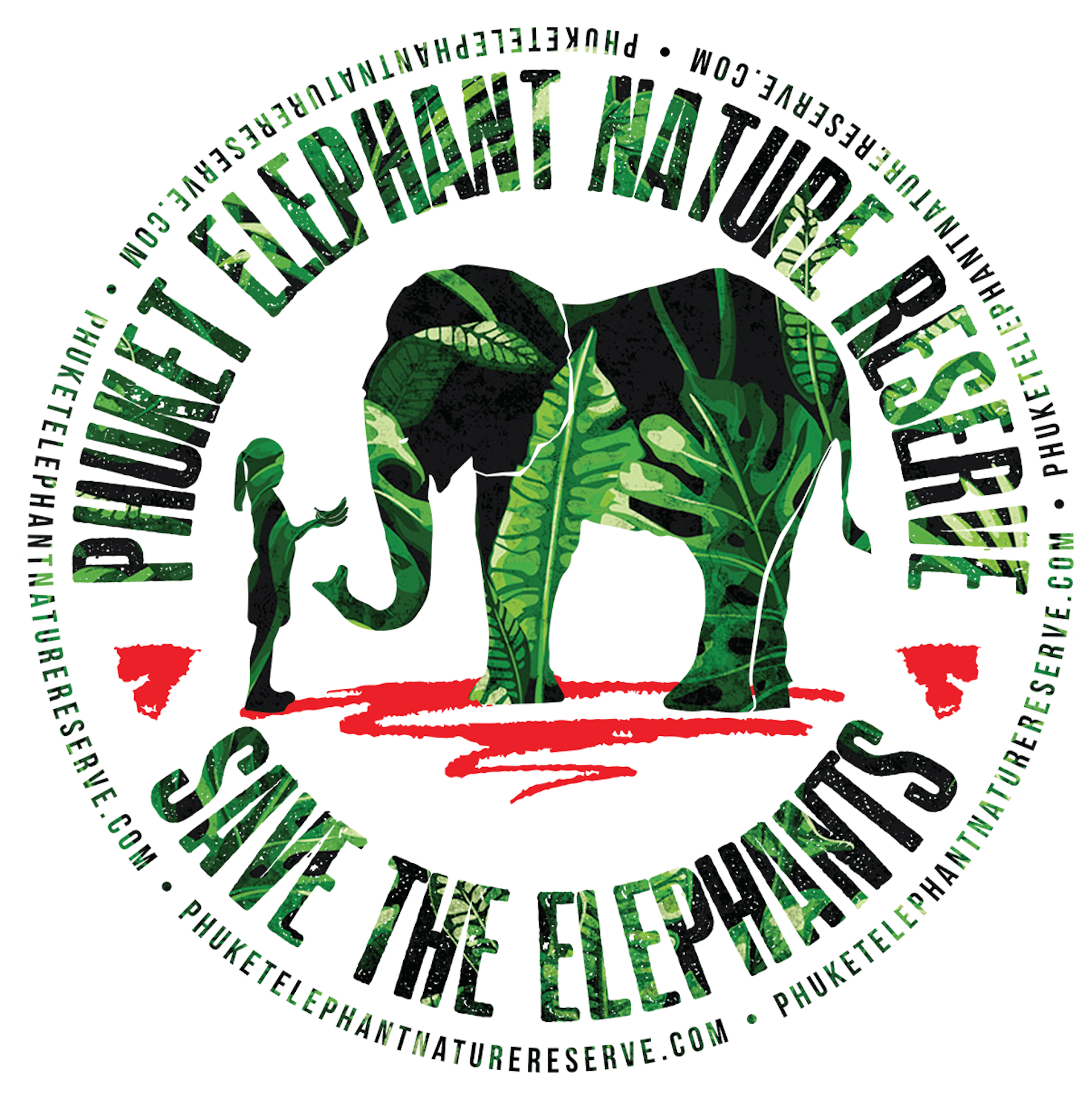The elephants of Thailand are one of the biggest draws for tourists. People travel to the country to ride the elephants, swim with them, play with calves, or watch the animals perform tricks. But all of this is cruel and unnatural. It is also threatening the species and leading to the loss of wild elephants in Thailand.
At the Phuket Elephant Nature Reserve, we are committed to the conservation of Thailand’s elephants and have rescued many from captivity who were being forced to give rides to tourists. Through our ethical Phuket Elephant Tours and Activities, we hope to raise awareness among locals and visitors about the need to protect and respect these wild creatures.
In our guide below, we break down the importance of ethical elephant tourism in Thailand and the threats facing the animals. If you have any questions for us, don’t hesitate to get in touch.

How Many Elephants Are in Thailand?
While the media might portray otherwise, there are only a few thousand elephants in Thailand. There are just over 3,000 wild elephants living in protected areas in Thailand, while a further 2,800 elephants are kept in captivity specifically for tourism, according to a report by World Animal Protection.
The population of wild elephants in Thailand has decreased from over 100,000 over a century ago. This decline has been driven by habitat loss and poaching, and today the Asian elephant is listed as Endangered by the IUC Red List.
The presence of elephants is crucial to the survival of ecosystems and our planet. If you want to learn more about the Importance of Elephant Conservation, read our in-depth blog.
How Does Tourism Threaten Elephants in Thailand?
Elephants in Thailand are kept under harmful conditions in order to serve the tourism industry. Many are privately owned and may be chained, underfed, and abused in order to be exploited for rides, tricks, or performances. The demand for interactions with elephants by tourists has led to an increase in captive elephants, with owners making a business out of elephant encounters.
Tourists may be fooled into thinking that these encounters are natural, especially if the elephants appear calm. But most have been beaten into submission and subjected to cruel treatment in order to be ridden or forced to perform.
Elephant tourism fuels the illegal wildlife trade and threatens wild elephants. It further normalizes that these conditions are natural when they are unequivocally dangerous to both elephants and people. People are more likely to be killed by a captive elephant and there is a higher likelihood of diseases spreading between humans and animals due to the closer contact.
Read our blogs on Should I Ride Elephants in Thailand and Why Bathing with Elephants is Unhygienic and Unethical for more information on why these practices are harmful and how to avoid them.

What is Ethical Elephant Tourism in Thailand?
So what does ethical elephant tourism in Thailand look like? A good starting point is knowing what NOT do with elephants when in Thailand, which we break down below:
- Do NOT ride elephants in Thailand
- Do NOT touch an elephant — captive elephants have been conditioned to get used to humans
- Do NOT play with baby elephants, who should not be separated from their mother
- Do NOT bathe with elephants
- Do NOT support or pay for elephants to perform tricks
Being able to participate in any of the above indicates that the elephants have come from poor conditions, and it incentivizes the continuation of animal exploitation.
If you do want to see elephants in Thailand, your best option is to see wild elephants in a nature reserve or in ethical sanctuaries. Wild elephants can be found in 69 preserves in Thailand, giving you a number of options. One of the best places for seeing wild elephants is Kui Buri National Park, where you can go on a safari and admire the animals from your vehicle.
Elephant sanctuaries provide an excellent alternative for seeing elephants. Many of these uphold high welfare standards, providing the elephants with space to roam, adequate food, and veterinary care. However, not all sanctuaries are equal, with some of them still promoting human-elephant interactions. Read our blog on How to Pick an Ethical Elephant Sanctuary in Thailand for more information on visiting elephant sanctuaries.

Support Sanctuaries Like Phuket Elephant Nature Reserve
Phuket Elephant Nature Reserve is proud to be a leading ethical elephant sanctuary in Phuket. We have dedicated ourselves to rescuing elephants from captivity and allowing them to lead as natural and free lives as possible. In many cases, captive elephants may not be able to return to the wild since they lack the necessary survival skills. But at our sanctuary, we have over 30 rai of jungle for them to roam in, where they can interact with other elephants as they would in the wild. We also provide them with the correct nutrition and the best medical care.
When you join one of our Phuket Elephant Tours, we provide you with an educational experience, teaching you all about these amazing animals. You can admire them from a careful distance as they play, bathe, and walk freely. We believe that elephants should be respected, protected, and free. We hope you join us in promoting ethical elephant tourism in Thailand. If you have any questions for us, please feel free to get in touch.






